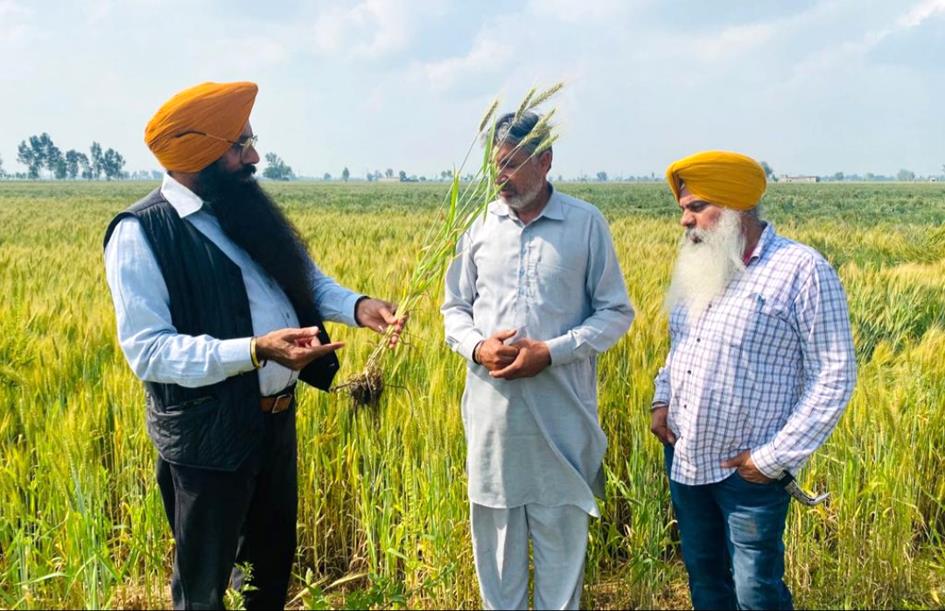Farmers in the district who had sown wheat after not burning the paddy straw and using the mulching technique have not witnessed lodging/felling of the crop in the recent rains, which were accompanied by a thunderstorm and strong winds.
Agro-scientists found this during a survey of wheat fields on Saturday.
This technique has also reduced weed growth and increased the water-holding capacity of soil in the fields, thus making the wheat plants stronger and able to withstand the vagaries of the weather. There was hardly any sign of yellow rust or any pest attack and the growth of the crops was also good, said Plant Protection Officer Dr Jaswinder Singh Brar.
He said less lodging was also observed in the wheat crop sown with zero till drill and happy seeders.
Even the effect of prolonged heat stress on wheat crop sown with the mulching technique was negligible as compared to the wheat crop sown after burning the paddy straw.
“The presence of paddy straw in the fields for its natural decomposition has helped to control soil moisture and temperature. It helped to keep the soil warm in extreme cold weather conditions in the month of December and keep cool during the times of unusual hot weather conditions developed in the first two weeks of March month,” he said.
Several farmers, including Tarsem Singh of Saleena village and Nirmal Singh of Manuke village, told the agro-scientists that they had observed several benefits of the technique.












